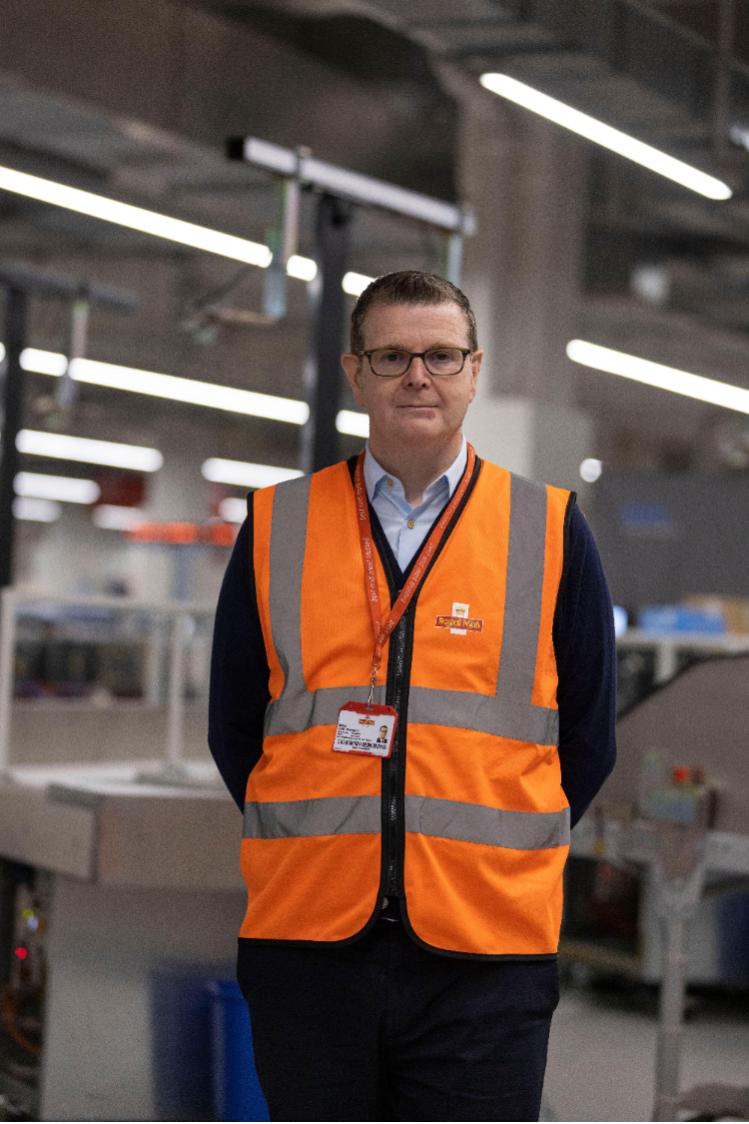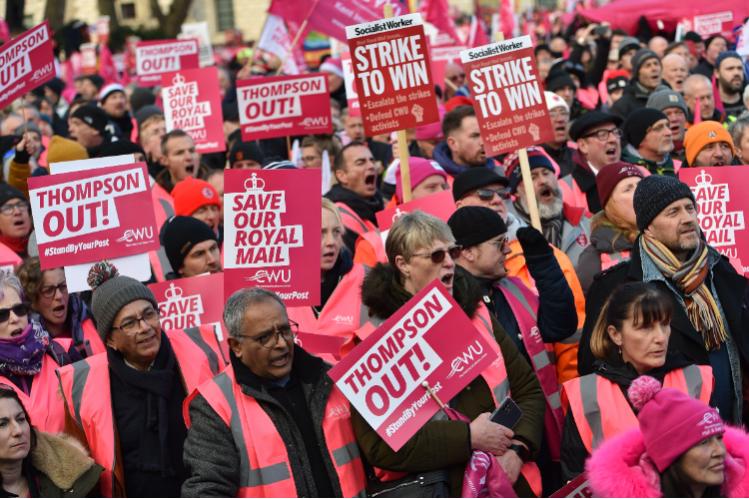Inside Darren Jones's mission to protect British workers
Darren Jones (Credit: lynchpics / Alamy Stock Photo)
7 min read
Darren Jones never anticipated becoming notorious on social media. Nonetheless, the Labour MP for Bristol North West has become something of a TikTok icon, owing to the intense scrutiny with which he treats politicians and company leaders in his role of chair of the Business, Energy and Industrial Strategy (BEIS) Committee.
“People have asked me, ‘Do you know how many million views you’ve had on TikTok?’, and I have actually never looked. I’m not particularly ‘tabloidy’ as a politician. I’m a bit nerdy really,” he reflects, speaking from his office in Portcullis House.
This nerdiness has seen Jones, 36, wear many hats already in his already varied career: “I was a scientist that became a lawyer that became a politician – I like detail.”
His “skills in cross-examination” helped secure his election as chair of the BEIS committee in 2020, despite being viewed as “a bit of an underdog”.
Now, a clip of him questioning the Royal Mail’s chief executive officer Simon Thompson on whether the postal firm was using technology to pressure workers into operating more quickly, to “cut costs” and “maximise shareholder dividends”, has been reposted many times on TikTok.
I’m not trying to create good television or be mean to someone, I just need answers to the questions, because that’s our job
Despite being bemused at his sudden social media fame, Jones’s concern that Royal Mail is mistreating its workers is palpable. “We’ve seen in places like Amazon and Evri that the technology is used to speed things up to an extent where people are putting themselves at risk,” he says. “Do we really want Royal Mail to be employing workers and putting them in the situations we have seen in other workplaces? I think that is bad practice, and I would rather we didn’t go down that path.”
Jones estimates he has received more than 1,000 emails from postal workers since the hearing with Royal Mail. He even had two Amazon workers drive from Mansfield in Nottinghamshire to his pub politics session in Bristol to ask for his help in a workplace dispute, after they had seen a clip of Jones questioning Amazon on TikTok.
 Royal Mail CEO Simon Thompson (Credit: Jeff Gilbert / Alamy Stock Photo)
Royal Mail CEO Simon Thompson (Credit: Jeff Gilbert / Alamy Stock Photo)
“I think a lot of workers have felt voiceless within their business about changes,” he says, “and have watched these processes in Parliament and found them quite cathartic. That is a nice example where social media has meant that people have seen what we do in Parliament and found it positive.”
Jones has now called Thompson back to the committee for further questioning, the first time he has had to do so in his role of chair. “This seems to be potentially quite an egregious example that requires recalling someone, as there were a couple of questions where the evidence we have received subsequently suggests that his answers were not right. I’m not trying to create good television or be mean to someone, I just need answers to the questions, because that’s our job,” he says.
(A Royal Mail spokesperson said: “We welcome the opportunity to expand on any points on which the committee would like clarification.”)
While Thompson’s difficulty answering Jones’s questions may have sent the clip viral, the MP finds such obfuscation “deeply frustrating”. He shoots a warning: “Don’t come to a committee and think it is some kind of sport where the winner is the person that has gotten away without saying very much. I think it is really quite simple; just answer the question.”
Jones’s job, he feels, is made even harder when holding ministers, who are effectively colleagues, to account. “You don’t want to purposely trip them up or railroad them in the media because that’s not a good working relationship,” he says. “As a committee chair, you have got to try to understand the personality of the minister, because the way you handle them can affect how things go. If someone has a bit of an ego, or expects a bit of deference, you have got to try and manage that in the right way.”
Jones feels he has grown into the role of chair, despite never wanting the job in the first place. “I always wanted to be an MP growing up in my now-constituency, Bristol, but I knew I didn’t want to be a career politician, which is why I became a lawyer,” he says. “I nearly gave up trying to become an MP when I lost the 2015 election. I thought I would just focus on my family [two daughters and wife, Lucy, who works in renewable energy]. When I won in 2017 it was not expected. The only reason I became chair of the select committee was because [Labour leader] Keir [Starmer] did not give me a job when he became leader; it was clearly kind of, ‘What is left? Who hasn’t been given something?’”
 Protesters demand the resignation of Simon Thompson (Credit: ZUMA Press, Inc. / Alamy Stock Photo)
Protesters demand the resignation of Simon Thompson (Credit: ZUMA Press, Inc. / Alamy Stock Photo)
Jones went on to join the Liaison Committee in 2020, where he is proud to have “the great privilege of multiple Q and A opportunities with the prime minister”. How do PMs generally fare under questioning?
He says: “Rishi was actually pretty good on the detail, but his political answers weren’t very good.”
And if Starmer were to be quizzed as our next prime minister?
“Keir would be across his brief, he would know the details, he knows the techniques. I’d probably be a bit nervous trying to question him on Liaison Committee, in a way that I haven’t been with anyone else,” he admits with a smile.
But Jones says certain prime ministers play “the game” all too well.
“I always had to stop Boris Johnson from filling the time, because on Liaison Committee, you have got six minutes, that’s it. He knows that and you know that. And he knows that if he keeps running, you’re running out of time. He has this trick where if you ask him a question, he’ll just tell you everything he knows about the key word in that sentence.” In January, the BEIS Committee launched an inquiry into battery manufacturing for electric vehicles, following an announcement that Britishvolt, the manufacturer tipped to become the first domestically owned battery factory in the United Kingdom, had gone bust, making 300 staff redundant.
Does Jones think we are missing opportunities to be leaders in the drive for net-zero? “It’s not always just about leading. We are just missing plain old bread and butter opportunities for the UK economy,” Jones says, obviously frustrated. “We launched our inquiry into battery manufacturing because the automotive sector employs thousands of people across the country and is one of the top three drivers of export led economic growth over the last decade. We know that all cars will have to be electric soon, but we are asleep at the wheel.”
Asked if he anticipates joining the government benches should Labour succeed at the next election, as the Westminster rumour mills suggest, he is pragmatic. “Do I want to be a Labour minister in a Labour government? Yes! Of course I do. That is why I am here. But the gossip in the media is just Westminster gossip.”
For now, Jones has just finished hosting The Committee Corridor podcast.
“It’s a bit of an innovation for us,” he says, “but the House particularly wanted to engage younger listeners.” With his rising popularity on social media, can Jones see himself interacting with the public more via the digital world? “Well, apparently I’ve got quite a good voice for podcasts, so maybe there’s a career for me after politics!”
